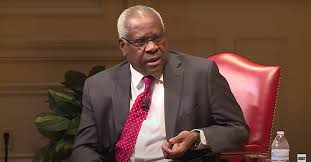Justice Clarence Thomas Calls “Self-Described Experts” Irrelevant in Transgender Care Case
In a fiery written opinion this week, Supreme Court Justice Clarence Thomas slammed the role of so-called “experts” in courtroom decision-making, calling them “self-described” and “irrelevant.” His remarks came after the Court upheld a Tennessee law banning gender-affirming care for transgender minors.

The ruling marked a major win for conservatives and sparked emotional reactions across the legal and medical communities. But Justice Thomas didn’t stop at agreeing with the ban — he used the opportunity to launch a broader critique of how courts treat scientific testimony.
In his separate concurring opinion, Thomas criticized the idea that judges must defer to professionals who claim expert status on complex issues like medical treatments. He warned that the judiciary is giving too much weight to scientific voices that may not be as objective or reliable as they appear.
“We are told that we should defer to the medical experts,” Thomas wrote. “But which ones? And why should we?”
He questioned the very language used to describe treatments like hormone therapy or surgeries for transgender minors, arguing that the term “gender-affirming care” is a sanitized and misleading label. According to Thomas, such procedures are often experimental and lack a solid foundation in long-term evidence.
His words sent a clear message: courts should not blindly accept expert opinions, especially in politically or morally charged cases.
Justice Sonia Sotomayor, writing the dissent, strongly disagreed. She accused the Court of turning its back on vulnerable children and failing to protect their constitutional rights. “This is a devastating blow to transgender youth and their families,” she wrote.
The case has sparked heated national debate over parental rights, medical freedom, and the role of the courts in interpreting science. It also sets the stage for future challenges to similar laws across the country.
For Justice Thomas, this was more than just a legal opinion — it was a statement about who really holds power in courtrooms: not scientists, but judges.


Comments are closed, but trackbacks and pingbacks are open.